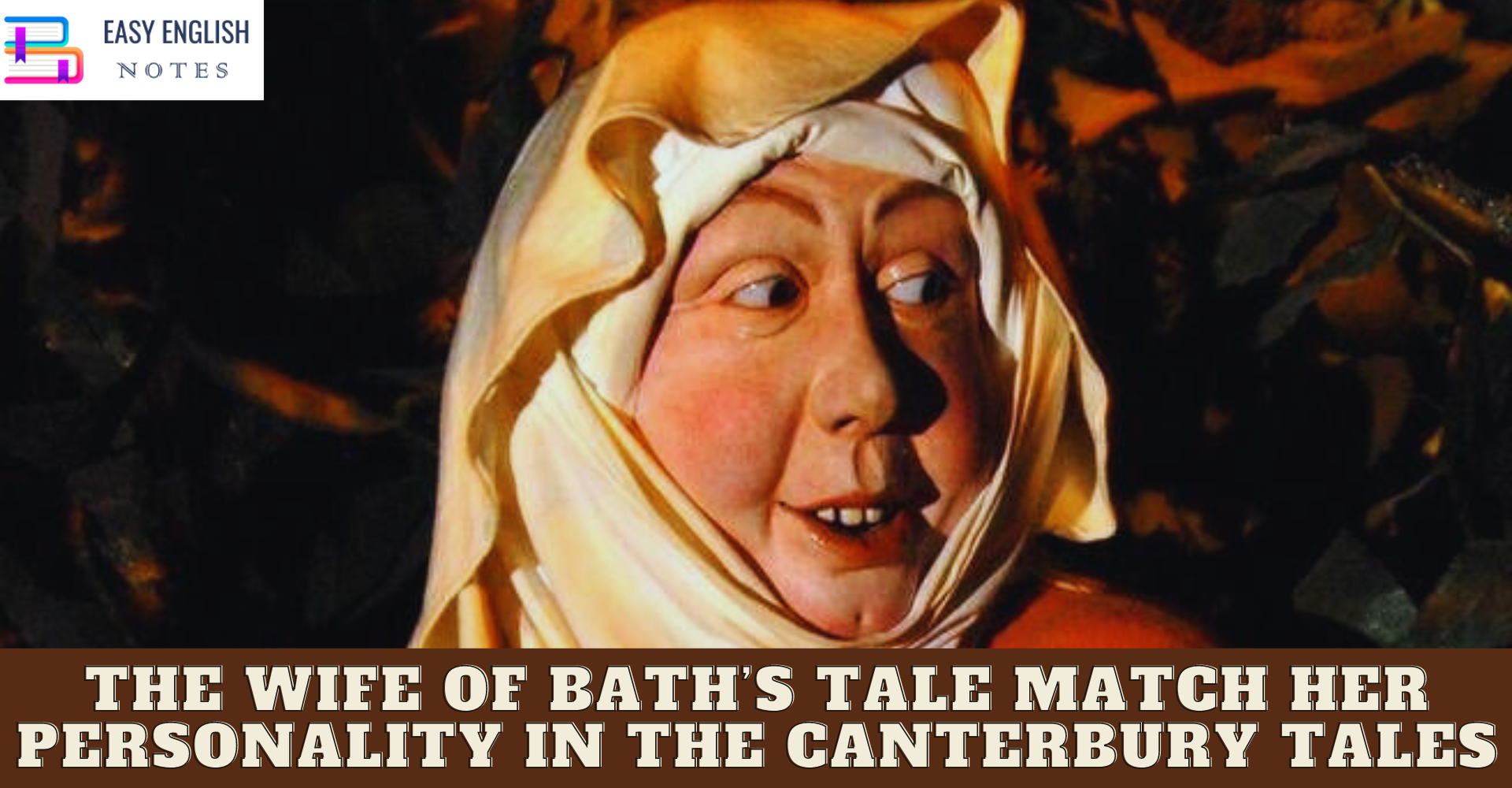The Wife of Bath’s tale has several parallels to her personality. For, the “worthy woman from Bath” wants to be married and her story is about marriage and conjugal relations. Also, in the Wife of Bath’s Tale, the old crone of the tale is loquacious, much like the pilgrim herself.
So, it is not surprising that the Wife of Bath does not begin with her tale, but, instead, talks of herself, then lampoons friars as dishonest and licentious, thus linking the Friar himself-who “dallied with women like boys playing with puppies” with the lecherous knight of her story. For she holds a grudge against the Friar for criticizing her during what he calls her “long preamble” to her tale.
Further, her tale is about women’s desire to be controlling, just as she has “ruled so hard and kept them [her husbands] under her “thumb” (line 219).
“No one ever owned me,” she declares. Much like the old crone whose young knight finally affords her the choice of the two options she has offered him regarding their marriage, she finally won control of her husband named Jannkin, who constantly read stories to her from a book about domineering women who brought their husbands grief.
One day when she had heard enough, she ripped three pages out of the book. Then her husband struck her so violently that he feared he had killed her.
When she became conscious, she told her husband,
“And for my land you’ve murdered me?( Before I die, bend down and kiss me, please.”(“He came to me, and knelt himself at my side,(Saying, ‘0 dearest Alison, my bride,(So help me God! I’ll never hit you again… (Forgive me please, I beg you. Forgive me, dear wife’ (lines 803-808).
After this, the husband “passed the bridle” (line 813) to her hands, much as the knight agrees to let his old wife be in power in the tale.
In yet another similarity to her tale, the Wife of Bath speaks of her “just dead husband” (line 593), who was twenty years her younger, much as in her tale a youthful knight marries the old crone. While the Wife of Bath remained older than her young husband, when the knight kisses his wife at the end of the tale, the old woman “had become a beauty” (line 391). This, perhaps, is a wish fulfillment of the Wife of Bath.
Also Read :
- Compare Hamlet with Macbeth, Othello and other Tragedies
- “The Pardoner’s Tale” is the finest tale of Chaucer
- Prologue to Canterbury Tales – (Short Ques & Ans)
- Confessional Poetry – Definition & meaning
The Wife of Bath’s Tale in Chaucer’s Canterbury Tales reflects the personality of the Wife of Bath, who is a complex and multifaceted character. The tale she tells is a reflection of her personal experiences and beliefs, particularly on the topics of marriage, power dynamics, and gender roles.
The Wife of Bath is a woman who has been married five times and has had many other romantic relationships. She is a confident and assertive woman who uses her sexuality and her wits to gain power and control in her relationships with men. She is also fiercely independent and believes that women should have the right to choose their own partners and to be equal to men in all aspects of life.
Her tale, “The Tale of the Knight,” reflects her views on the subject of marriage and gender roles. In the tale, the knight rapes a young woman, but instead of being punished, he is given a chance to redeem himself by learning what women want most. Through a journey, he discovers that women want sovereignty in their relationships and that true gentleness and respect should be shown towards women. The tale ultimately promotes the idea that a healthy marriage is based on mutual respect and equality between partners, rather than power struggles and domination.
Overall, the Wife of Bath’s Tale reflects her strong and outspoken personality, as well as her belief in the importance of women’s rights and the need for equality in relationships.
PLEASE HELP ME TO REACH 1000 SUBSCRIBER ON MY COOKING YT CHANNEL (CLICK HERE)











